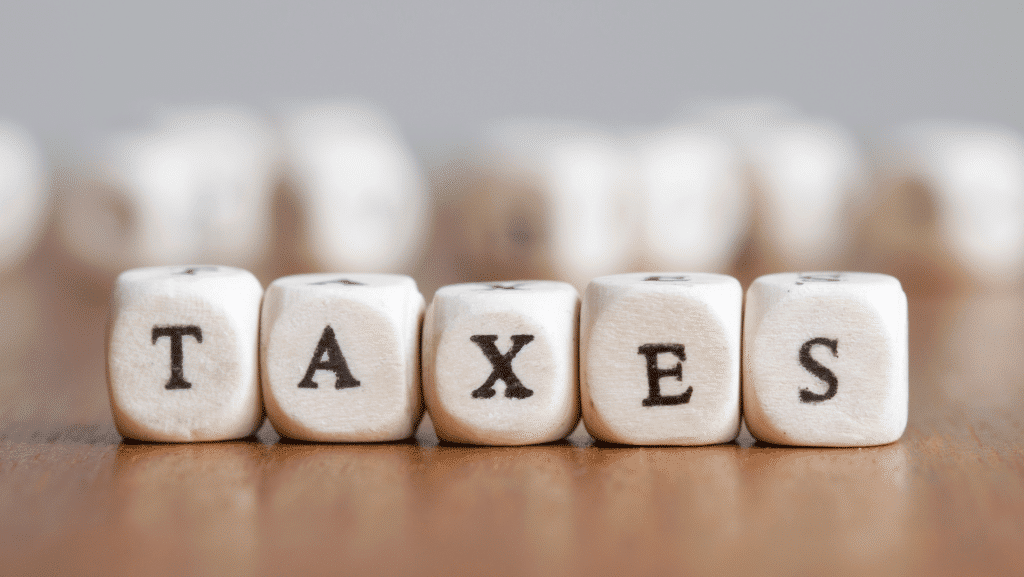Progressive rates can be part of a reference tax system. The reference tax system is, in principle, made up of the tax base, the tax rates and the taxable events. Introduction Progressive turnover taxes were thought to be selective because they are levied on gross revenue before costs are deducted and larger volumes of revenue are taxed at higher rates. […]
State Aid Law
Blog
State Aid Uncovered Blog
In Lexxion’s State Aid Uncovered blog, Prof. Phedon Nicolaides publishes weekly critical analyses of recent State aid judgments and decisions. Each post presents the key points of a court judgment or EU Commission decision, places it in the context of similar case law or practice, assesses the underlying reasoning and highlights any inconsistencies or contradictions.
Guest contributions from other State aid experts will also be published on the blog at irregular intervals to complement the content of the blog posts.
Guest State Aid Blog ×
4. May 2021 |
State Aid Uncovered
by Phedon Nicolaides
10. November 2020 |
State Aid Uncovered
by Phedon Nicolaides
An official’s statement can be imputed to his authority if it can be reasonably assumed that the official speaks on behalf of the authority. Introduction It is often asked by national officials how much credence they should give to assurances by Commission officials in the absence of a formal Commission decision and what is the legal value of such assurances. […]
21. July 2020 |
State Aid Uncovered
by Phedon Nicolaides
Defects, incompleteness and inconsistencies in tax rulings are not sufficient to prove the existence of an advantage in the meaning of Article 107(1) TFEU. Update on Temporary Framework: Number of approved and published covid-19 measures, as of 17 July 2020: 213* Legal basis: Article 107(2)(b): 21; Article 107(3)(b): 179; Article 107(3)(c): 18 Five Member States have implemented 13 or more […]
14. July 2020 |
State Aid Uncovered
by Phedon Nicolaides
The Annual Competition Report is a useful document, but it should provide more information on the results of the ex post evaluations and ex post monitoring. Update on Temporary Framework: Number of approved and published COVID-19 measures, as of 10 July 2020: 202* Legal basis: Article 107(2)(b): 20; Article 107(3)(b): 171; Article 107(3)(c): 17 Six Member States have implemented 11 […]
31. March 2020 |
State Aid Uncovered
by Phedon Nicolaides
Compensation for costs incurred as a result of a natural disaster is State aid. The compensation must be for damage directly caused by the natural disaster. Introduction State aid to make good the damage caused by an “exceptional occurrence” such as the corona virus covid-19 is compatible with the internal market. The legal basis for exemption is Article 107(2)(b). Of […]
25. February 2020 |
State Aid Uncovered
by Phedon Nicolaides
Liability assumed by the state for the actions of an undertaking constitutes a selective advantage that may result in potential transfer of state resources in the future. Introduction On 16 January 2020 the General Court delivered its judgment in case T‑257/18, Iberpotash v European Commission.[1] Iberpotash, a Spanish company, appealed against Commission decision 2018/118. Iberpotash owns and operates potash mines […]
30. October 2019 |
State Aid Uncovered
by Phedon Nicolaides
The assignment of public service tasks to an infrastructure operator is not sufficient to prevent the application of State aid rules. Introduction The characterisation of an entity as an undertaking is activity based, not status based. If it carries out activities for which there is a market, it becomes an undertaking, regardless of providing services which are in the general […]
16. January 2018 |
State Aid Uncovered
by Phedon Nicolaides
To determine whether a measure is selective it is necessary to compare the beneficiary companies to other companies which are in a similar situation and determine whether the latter receive the same advantage. Introduction[1] On 20 December 2017, the Court of Justice delivered three judgments in appeals against rulings of the General Court concerning the expansion of digital terrestrial television […]
17. January 2017 |
State Aid Uncovered
by Phedon Nicolaides
The advantage conferred by State aid is not necessarily equivalent to the economic benefit that is eventually enjoyed by aid recipients. Incompatible State aid has to be repaid regardless of whether it is passed on to the customers of the aid recipients. Undertakings derive an advantage when state intervention reduces the costs they would bear under “normal market conditions” whereby […]
10. January 2017 |
State Aid Uncovered
by Phedon Nicolaides
The advantage conferred by State aid is not necessarily equivalent to the economic benefit that is eventually enjoyed by aid recipients. Incompatible State aid has to be repaid regardless of whether it is passed on to the customers of the aid recipients. Undertakings derive an advantage when state intervention reduces the costs they would bear under “normal market conditions” whereby […]
Guest State Aid Blog ×
4. May 2021 |
State Aid Uncovered
by Phedon Nicolaides
Progressive rates can be part of a reference tax system. The reference tax system is, in principle, made up of the tax base, the tax rates and the taxable events. Introduction Progressive turnover taxes were thought to be selective because they are levied on gross revenue before costs are deducted and larger volumes of revenue are taxed at higher rates. […]
10. November 2020 |
State Aid Uncovered
by Phedon Nicolaides
An official’s statement can be imputed to his authority if it can be reasonably assumed that the official speaks on behalf of the authority. Introduction It is often asked by national officials how much credence they should give to assurances by Commission officials in the absence of a formal Commission decision and what is the legal value of such assurances. […]
21. July 2020 |
State Aid Uncovered
by Phedon Nicolaides
Defects, incompleteness and inconsistencies in tax rulings are not sufficient to prove the existence of an advantage in the meaning of Article 107(1) TFEU. Update on Temporary Framework: Number of approved and published covid-19 measures, as of 17 July 2020: 213* Legal basis: Article 107(2)(b): 21; Article 107(3)(b): 179; Article 107(3)(c): 18 Five Member States have implemented 13 or more […]
14. July 2020 |
State Aid Uncovered
by Phedon Nicolaides
The Annual Competition Report is a useful document, but it should provide more information on the results of the ex post evaluations and ex post monitoring. Update on Temporary Framework: Number of approved and published COVID-19 measures, as of 10 July 2020: 202* Legal basis: Article 107(2)(b): 20; Article 107(3)(b): 171; Article 107(3)(c): 17 Six Member States have implemented 11 […]
31. March 2020 |
State Aid Uncovered
by Phedon Nicolaides
Compensation for costs incurred as a result of a natural disaster is State aid. The compensation must be for damage directly caused by the natural disaster. Introduction State aid to make good the damage caused by an “exceptional occurrence” such as the corona virus covid-19 is compatible with the internal market. The legal basis for exemption is Article 107(2)(b). Of […]
25. February 2020 |
State Aid Uncovered
by Phedon Nicolaides
Liability assumed by the state for the actions of an undertaking constitutes a selective advantage that may result in potential transfer of state resources in the future. Introduction On 16 January 2020 the General Court delivered its judgment in case T‑257/18, Iberpotash v European Commission.[1] Iberpotash, a Spanish company, appealed against Commission decision 2018/118. Iberpotash owns and operates potash mines […]
30. October 2019 |
State Aid Uncovered
by Phedon Nicolaides
The assignment of public service tasks to an infrastructure operator is not sufficient to prevent the application of State aid rules. Introduction The characterisation of an entity as an undertaking is activity based, not status based. If it carries out activities for which there is a market, it becomes an undertaking, regardless of providing services which are in the general […]
16. January 2018 |
State Aid Uncovered
by Phedon Nicolaides
To determine whether a measure is selective it is necessary to compare the beneficiary companies to other companies which are in a similar situation and determine whether the latter receive the same advantage. Introduction[1] On 20 December 2017, the Court of Justice delivered three judgments in appeals against rulings of the General Court concerning the expansion of digital terrestrial television […]
17. January 2017 |
State Aid Uncovered
by Phedon Nicolaides
The advantage conferred by State aid is not necessarily equivalent to the economic benefit that is eventually enjoyed by aid recipients. Incompatible State aid has to be repaid regardless of whether it is passed on to the customers of the aid recipients. Undertakings derive an advantage when state intervention reduces the costs they would bear under “normal market conditions” whereby […]
10. January 2017 |
State Aid Uncovered
by Phedon Nicolaides
The advantage conferred by State aid is not necessarily equivalent to the economic benefit that is eventually enjoyed by aid recipients. Incompatible State aid has to be repaid regardless of whether it is passed on to the customers of the aid recipients. Undertakings derive an advantage when state intervention reduces the costs they would bear under “normal market conditions” whereby […]
Guest State Aid Blog ×
4. May 2021 |
State Aid Uncovered
by Phedon Nicolaides
Progressive rates can be part of a reference tax system. The reference tax system is, in principle, made up of the tax base, the tax rates and the taxable events. Introduction Progressive turnover taxes were thought to be selective because they are levied on gross revenue before costs are deducted and larger volumes of revenue are taxed at higher rates. […]
10. November 2020 |
State Aid Uncovered
by Phedon Nicolaides
An official’s statement can be imputed to his authority if it can be reasonably assumed that the official speaks on behalf of the authority. Introduction It is often asked by national officials how much credence they should give to assurances by Commission officials in the absence of a formal Commission decision and what is the legal value of such assurances. […]
21. July 2020 |
State Aid Uncovered
by Phedon Nicolaides
Defects, incompleteness and inconsistencies in tax rulings are not sufficient to prove the existence of an advantage in the meaning of Article 107(1) TFEU. Update on Temporary Framework: Number of approved and published covid-19 measures, as of 17 July 2020: 213* Legal basis: Article 107(2)(b): 21; Article 107(3)(b): 179; Article 107(3)(c): 18 Five Member States have implemented 13 or more […]
14. July 2020 |
State Aid Uncovered
by Phedon Nicolaides
The Annual Competition Report is a useful document, but it should provide more information on the results of the ex post evaluations and ex post monitoring. Update on Temporary Framework: Number of approved and published COVID-19 measures, as of 10 July 2020: 202* Legal basis: Article 107(2)(b): 20; Article 107(3)(b): 171; Article 107(3)(c): 17 Six Member States have implemented 11 […]
31. March 2020 |
State Aid Uncovered
by Phedon Nicolaides
Compensation for costs incurred as a result of a natural disaster is State aid. The compensation must be for damage directly caused by the natural disaster. Introduction State aid to make good the damage caused by an “exceptional occurrence” such as the corona virus covid-19 is compatible with the internal market. The legal basis for exemption is Article 107(2)(b). Of […]
25. February 2020 |
State Aid Uncovered
by Phedon Nicolaides
Liability assumed by the state for the actions of an undertaking constitutes a selective advantage that may result in potential transfer of state resources in the future. Introduction On 16 January 2020 the General Court delivered its judgment in case T‑257/18, Iberpotash v European Commission.[1] Iberpotash, a Spanish company, appealed against Commission decision 2018/118. Iberpotash owns and operates potash mines […]
30. October 2019 |
State Aid Uncovered
by Phedon Nicolaides
The assignment of public service tasks to an infrastructure operator is not sufficient to prevent the application of State aid rules. Introduction The characterisation of an entity as an undertaking is activity based, not status based. If it carries out activities for which there is a market, it becomes an undertaking, regardless of providing services which are in the general […]
16. January 2018 |
State Aid Uncovered
by Phedon Nicolaides
To determine whether a measure is selective it is necessary to compare the beneficiary companies to other companies which are in a similar situation and determine whether the latter receive the same advantage. Introduction[1] On 20 December 2017, the Court of Justice delivered three judgments in appeals against rulings of the General Court concerning the expansion of digital terrestrial television […]
17. January 2017 |
State Aid Uncovered
by Phedon Nicolaides
The advantage conferred by State aid is not necessarily equivalent to the economic benefit that is eventually enjoyed by aid recipients. Incompatible State aid has to be repaid regardless of whether it is passed on to the customers of the aid recipients. Undertakings derive an advantage when state intervention reduces the costs they would bear under “normal market conditions” whereby […]
10. January 2017 |
State Aid Uncovered
by Phedon Nicolaides
The advantage conferred by State aid is not necessarily equivalent to the economic benefit that is eventually enjoyed by aid recipients. Incompatible State aid has to be repaid regardless of whether it is passed on to the customers of the aid recipients. Undertakings derive an advantage when state intervention reduces the costs they would bear under “normal market conditions” whereby […]













